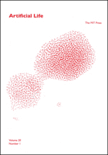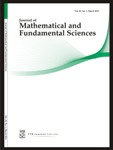
Physics of Life Reviews
metrics 2024
Bridging Disciplines for a Deeper Understanding of Life
Introduction
Physics of Life Reviews is an esteemed journal published by ELSEVIER, focusing on the interdisciplinary study of life sciences through the lens of physical principles. Since its inception in 2004, the journal has garnered considerable recognition, achieving a remarkable impact factor that underscores its significance—ranking in the top quartile (Q1) across three distinct categories in 2023, including Agricultural and Biological Sciences, Artificial Intelligence, and Physics and Astronomy. These exceptional rankings highlight the journal's commitment to advancing research and fostering innovation in the application of physical concepts to biological systems. Physics of Life Reviews provides comprehensive reviews, critical analyses, and cutting-edge insights that are essential for researchers, professionals, and students seeking to navigate and contribute to this dynamic field. As an essential resource, the journal encourages the exploration of new paradigms and methodologies, facilitating the growth of knowledge at the intersection of physics and life sciences.
Metrics 2024
 1.72
1.72 13.70
13.70 11.30
11.30 74
74Metrics History
Rank 2024
Scopus
IF (Web Of Science)
JCI (Web Of Science)
Quartile History
Similar Journals

Complex Systems
Advancing Knowledge in Complex Systems ScienceComplex Systems is a pivotal journal published by Complex Systems Publications Inc, specializing in the interdisciplinary field of complex systems science. With an ISSN of 0891-2513, it focuses on advancing the understanding of complex phenomena across various domains, including computer science and control engineering. Operating from the United States, this journal has established itself as a credible source with a current impact factor reflecting its relevance—ranking in the Q3 category for both Computer Science (miscellaneous) and Control and Systems Engineering as of 2023. Although it does not offer Open Access, Complex Systems aims to facilitate the exchange of cutting-edge research and innovative methodologies, making it indispensable for researchers, professionals, and students eager to explore and contribute to the field. With coverage spanning from 2012 to 2024, it strives to foster a deeper understanding of the principles governing complex systems, thus paving the way for future technological advancements and theoretical developments.

BIOLOGY & PHILOSOPHY
Deciphering the Philosophical Underpinnings of Biological ResearchBIOLOGY & PHILOSOPHY, published by SPRINGER, is a leading journal that explores the intricate and dynamic interplay between biology and philosophy. With an impressive impact factor in the Q1 category across multiple disciplines including Agricultural and Biological Sciences, History and Philosophy of Science, and Philosophy, this journal has firmly established itself as an essential resource for researchers, professionals, and students alike. Since its inception in 1986 and continuing through 2024, BIOLOGY & PHILOSOPHY fosters critical inquiry and discussion, inviting contributions that advance the understanding of biological sciences from philosophical perspectives. Although it operates under a traditional subscription model without Open Access options, its high Scopus rankings—#38 in Philosophy and #14 in History and Philosophy of Science—underscore its significance and influence in contemporary research. For those keen on delving deeper into the ethical, epistemological, and conceptual challenges posed by biological research, this journal serves as a compelling platform for groundbreaking scholarship.

Nonlinear Dynamics Psychology and Life Sciences
Illuminating the Dynamics of Psychological PhenomenaNonlinear Dynamics Psychology and Life Sciences is a leading journal published by the SOC CHAOS THEORY PSYCHOLOGY & LIFE SCIENCES, focusing on the intersection of nonlinear dynamics and psychological phenomena as well as their implications in life sciences. With an ISSN of 1090-0578 and an E-ISSN of 1573-6652, this journal stands out as a reputable source of innovative research and analytical studies that contribute significantly to the fields of applied mathematics and psychology. By delving into the complex behaviors and patterns of dynamic systems, the journal addresses vital contemporary issues, making it essential reading for researchers, professionals, and students alike. Although it operates on a traditional access model, the journal's insights are invaluable for understanding the empirical background behind nonlinear dynamics in psychological research. Recognized within the academic community for its contributions, it holds a 2023 Scopus ranking of #436 out of 635 in the Applied Mathematics category, placing it in the 31st percentile, and it is designated as Q3 in its quartile categorization. As a bridge between theoretical foundations and real-world applications, Nonlinear Dynamics Psychology and Life Sciences aims to foster interdisciplinary dialogue and inspire future research in this exciting and evolving field.

Natural Sciences
Bridging disciplines to illuminate the wonders of the natural world.Natural Sciences is a premier journal published by WILEY, dedicated to advancing the interdisciplinary field of natural sciences through the dissemination of high-quality research. With an ISSN of 2698-6248, this publication features original contributions that explore a wide range of topics including biology, chemistry, physics, and environmental science. Despite the current absence of an impact factor, the journal's commitment to rigorous peer-review ensures the integrity and relevance of its scholarly work. Situated at the forefront of scientific inquiry, Natural Sciences serves as a vital resource for researchers, professionals, and students looking to stay informed about the latest breakthroughs and methodologies in the natural sciences. Emphasizing open access principles, this journal strives to make cutting-edge research readily available to a global audience, fostering collaboration and innovation across disciplines.

ARTIFICIAL LIFE
Advancing Knowledge at the Intersection of Life and TechnologyARTIFICIAL LIFE, published by MIT PRESS, is a premier academic journal dedicated to the interdisciplinary study of artificial life, exploring the intersection of biology, computer science, and related fields. With an impact factor that reflects its influential contributions—especially highlighted in its Q3 rankings in Artificial Intelligence, Biochemistry, Genetics and Molecular Biology, and Ecology, Evolution, Behavior and Systematics—the journal serves as a critical platform for researchers, professionals, and students alike. Originating in 1995, ARTIFICIAL LIFE continues to publish cutting-edge research that pushes the boundaries of our understanding of life-like systems, both natural and synthetically designed. Despite having limited open access options, the journal’s role in fostering innovative discussions and advancements in its field cannot be overstated, making it an essential resource for anyone engaged in the study and application of artificial life concepts.

BIOLOGICAL CYBERNETICS
Exploring the Intersection of Biology and TechnologyBIOLOGICAL CYBERNETICS is a premier journal published by SPRINGER, dedicated to advancing the fields of biotechnology and computer science through the lens of biological interactions. With an ISSN of 0340-1200 and an E-ISSN of 1432-0770, this esteemed journal has been a cornerstone of academic research since its inception in 1961 and is set to continue influencing the landscape of biological cybernetics through 2024. The journal currently holds a Q3 ranking in the Biotechnology category and a Q2 ranking in miscellaneous Computer Science according to the 2023 category quartiles, showcasing its credibility and impact in the interdisciplinary nexus of these fields. Although it does not provide open access options, researchers and students can engage with its innovative content that includes original research articles, reviews, and methodologies that explore the computational modeling of biological systems and the integration of artificial intelligence in biological research. With its strategic location in the United States and a robust publication record, BIOLOGICAL CYBERNETICS remains an essential resource for anyone looking to deepen their understanding and application of cybernetic principles within biological contexts.

Journal of Mathematical and Fundamental Sciences
Bridging theory and application in mathematical sciences.Journal of Mathematical and Fundamental Sciences, published by INST TEKNOLOGI BANDUNG, serves as an essential platform for disseminating research findings in the diverse fields of mathematical and fundamental sciences. With an ISSN of 2337-5760 and recognized as an Open Access journal since 2013, this publication promotes global accessibility to innovative research, fostering collaboration among researchers, professionals, and students in Indonesia and beyond. The journal has demonstrated its influence within the academic community, evidenced by its classification in various quartiles for 2023, including Q3 in Agricultural and Biological Sciences and Mathematics, and Q4 rankings in several other disciplines. Furthermore, it holds respectable Scopus ranks across numerous categories, reflecting its commitment to quality and relevance in research contributions. With a focus on multidisciplinary studies, the Journal of Mathematical and Fundamental Sciences is dedicated to advancing knowledge and inspiring new ideas across a spectrum of scientific inquiries.

Emerging Topics in Life Sciences
Unlocking Knowledge in Life SciencesEmerging Topics in Life Sciences is a prestigious journal published by Portland Press Ltd, dedicated to advancing the field of life sciences through innovative research, critical reviews, and insightful discussions. With an ISSN of 2397-8554 and an E-ISSN of 2397-8562, this journal operates from its base in the United Kingdom and has quickly established itself as a leading platform for high-quality scientific communication since its inception in 2017. Its esteemed ranking in the 2023 Scopus Quartiles—notably Q1 in Agricultural and Biological Sciences and Q2 in Biochemistry, Genetics and Molecular Biology—demonstrates its significant impact, attracting the attention of researchers and practitioners alike. The journal excels in providing open access to its content, ensuring that vital information is freely available to the global research community. With a focus on the latest trends and emerging topics, this journal is ideally suited for academics, professionals, and students seeking to deepen their understanding of life sciences and contribute to this dynamic field.

Annual Review of Biophysics
Your Gateway to Cutting-edge Biophysical DiscoveriesThe Annual Review of Biophysics, published by ANNUAL REVIEWS, stands as a premier journal in the field of biophysics, offering an unparalleled collection of comprehensive and insightful reviews that synthesize the latest advancements in biochemistry, bioengineering, cell biology, structural biology, and more. With an impressive Q1 ranking across multiple categories as of 2023, this journal is recognized for its significant contribution to the scientific community, highlighted by its robust Scopus ranking—placing it in the 99th percentile for biophysics and the 96th percentile for structural biology. Operating under an open access policy, the journal ensures a broad dissemination of crucial findings and theoretical advancements. As the field of biophysics continues to expand, the Annual Review of Biophysics remains essential for researchers, professionals, and students seeking to stay informed about pivotal developments that shape our understanding of biological systems at the molecular level. One may refer to the journal for current trends, innovative methodologies, and a wealth of knowledge that drives the field forward.

JOURNAL OF BIOLOGICAL PHYSICS
Advancing Knowledge at the Intersection of Physics and BiologyThe JOURNAL OF BIOLOGICAL PHYSICS, published by Springer, is a premier interdisciplinary journal that focuses on the intersection of biological sciences and physics. With an ISSN of 0092-0606 and an E-ISSN of 1573-0689, this journal serves as a significant platform for researchers and professionals to publish innovative studies, covering fields such as atomic and molecular physics, biophysics, cell biology, and molecular biology. The journal has been a key player since its inception in 1973, showcasing rigorous scientific inquiry and advancing knowledge within these domains, reflected in its categorization in the Q3 and Q4 quartiles of various relevant fields as of 2023. While it currently operates without an Open Access model, the journal continues to provide pivotal contributions to its audience, supporting academic and practical advancements in biological physics while engaging a broad scope of scholarly discourse.